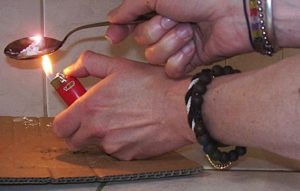The Strong Defense
You Deserve
Learn The Facts About The Laws Against Heroin Possession And Trafficking In Florida

Possession and use of heroin is a serious offense in Florida. Each year scores of Floridians are arrested, charged, and imprisoned for possession, trafficking, or selling heroin in Florida. Below is what you need to know if you find yourself charged with a heroin crime in Florida.
History
Heroin is a product of the opium poppy, which has been cultivated for its mind-altering properties for at least five millennia. Diamorphine was first derived from the morphine in opium poppies in 1874 and again separately several years later by a chemist working for Germany’s pharmaceutical firm Bayer. Diamorphine was marketed under the trade name “Heroin” as an over-the-counter cough suppressant, and it was touted (falsely) for its non-addictive properties.
The first prohibition on heroin sales came in the form of the Harrison Narcotics Tax Act in 1914, which required a prescription for the sale of heroin. The drug was made a Schedule I substance by Congress ten years later, effectively making any sale of the drug illegal in the United States.
Possession
In Florida the trafficking and sale of heroin is governed by the Florida Comprehensive Drug Abuse Prevention and Control Act. In addition to prohibiting heroin, the Act also makes possession and sale of opium and morphine a crime. Under the Act, the prosecution must prove
- the defendant was in possession of a substance, and
- that substance was heroin.
The prosecution must show both of these as being true beyond a reasonable doubt, but he or she need not prove it directly. Constructive possession of heroin can also lead to a conviction in Florida.
A conviction of possession of heroin is a third degree felony, which may lead to a prison sentence of up to five years and a fine of up to $5,000. In addition, a conviction may lead to the suspension of the defendant’s driver’s license.
Sale, Delivery, and Manufacturing
Prosecutors may also charge a defendant found with heroin with sale, delivery, or manufacture of heroin. The amount of heroin the defendant is found with is not relevant to such a charge, only the defendant’s intent, which must have been to sell, manufacture, or deliver heroin. The defendant need not have actually made the sale, completed the manufacture, or made the delivery, as simply having the intent is sufficient for a conviction in Florida.
A conviction for sale, manufacture, or delivery of heroin is a second degree felony, punishable by up to fifteen years in prison and a fine of up to $10,000. Here again, a conviction may also lead to the suspension of a defendant’s driver’s license.
Trafficking
Heroin trafficking in Florida is knowingly possessing, selling, manufacturing, delivering, or transporting four grams or more of heroin or a compound derived from heroin. Florida law has several tiers of penalties for trafficking in heroin.
- Trafficking between four and 14 grams of heroin is a mandatory minimum of three years in prison and a fine of $50,000.
- Trafficking more than 14 grams but less than 28 grams of heroin is a mandatory minimum of 15 years in prison and a fine of $100,000.
- Trafficking between 28 grams and 30 kilograms of heroin is a mandatory minimum of 25 years in prison and a fine of $500,000.
- Trafficking more than 30 kilograms of heroin is a mandatory life sentence and a fine of $500,000.


